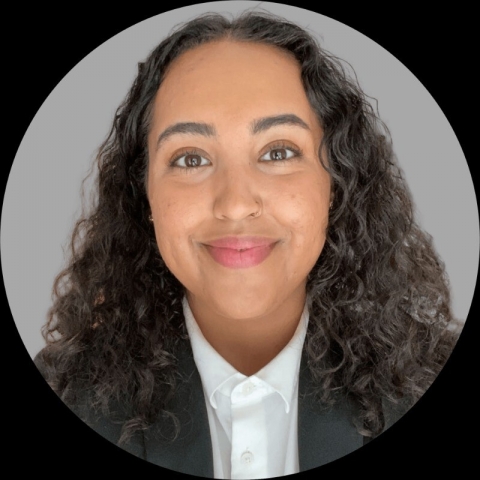Naseeha (Nas) Cardwell plans to defend her PhD thesis in Chemical Engineering at Washington State University this fall. She is the first woman in her family to be college-educated, and the first to earn a PhD. She says every opportunity along her STEM path made a difference.
As a Seattle Chapter ARCS Scholar, Cardwell’s research focuses on renewable biofuels, specifically how to improve the efficiency of catalytic processes to make biofuels more competitive with petroleum-based fuels. She is part of Washington State University’s Voiland School of Chemical Engineering and Bioengineering.
“I am a computational researcher,” she explains. “I work exclusively on a computer.” Her group studies “the different systems used to create these biofuels. We write code and create simulations of these biofuel systems at the atomic scale, so we deal with atoms and molecules.”
The goal is to diversify the energy portfolio, and be less reliant on petroleum, linked to climate change. “Having different types of energy is the way to go,” she says. “Biofuel is one way to accomplish that; it has almost all the same properties as petroleum. It’s slightly less efficient. That's where my research comes in -- making it more efficient.”
Cardwell’s research looks at the impact of different molecules on how they interact with catalyst surfaces and each other. “This is really the foundation behind both computational research and catalysis research. These are the building blocks to say that we now understand how the field works, how these molecules interact, and how this catalyst is affected by these molecules,” she explains. Scientists hope to understand how other external factors also impact molecules.
Cardwell says she is grateful for ARCS Foundation Scholar Award. “I don't think it's a surprise to anyone that graduate students are paid pennies. We are not paid enough to care for anything besides our rent and food. But ARCS made a difference for me in building up my savings account and having an emergency fund, which I ended up having to use a few times to make sure that I can continue doing what I love,” she says.
In addition to the ARCS Scholar Award, she has also received a National GEM Consortium fellowship. This fellowship opened the door for Cardwell to intern at the Pacific Northwest National Laboratory in Washington.
The Society of Women Engineers (SWE) recognized Cardwell’s efforts in chemical engineering. She joined the society in high school and became an active member as an undergraduate. In 2022, she was selected out of 1,100 applicants to be honored with the Society of Women Engineers Intel Graduate Diversity Scholarship. “SWE is a great organization in that as much as it gives back to us, it also encourages us to give back to others,” Cardwell says.

